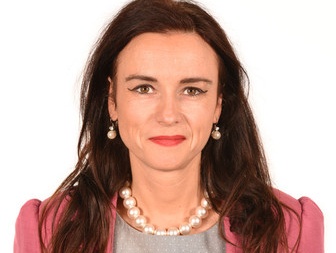Obesity and food insecurity will be the focus of a £1.6m study by scientists at the University of Aberdeen's Rowett Institute.
Funded by the UKRI, BBSRC, the crucial research will investigate consumer habits, covering a broad cross-section of shoppers and will consider how issues around poverty, food insecurity and obesity may affect shopping habits.
Aiming to improve sustainable and healthier food choices for people living with obesity and food insecurity, the collaborative study will, for the first time, bring together consumers, policy makers, charities, food producers, processors and retailers, as well as expert academics to co-develop and test strategies that can support future changes in the food system.
With improved health outcomes and the natural environment at its core, the 3-year study will involve a collaboration for the first time with Sainsbury’s supermarket, one of the UK’s biggest food retailers.
Using historic, anonymous data gathered from Nectar customers, researchers will analyse food choices in a bid to improve the understanding of food systems in the UK and provide evidence for supporting policy changes across the retail industry.
Professor Alexandra Johnstone of the Rowett Institute, who is leading the project, said: “With the cost-of-living crisis, it is only going to get harder for people to make healthier food choices. For families on low incomes, 76% of monthly food budgets are spent in supermarkets, so decisions that the retail food sector make around advertising, promotions and in store design has a huge impact on public health within this vulnerable group.
“We know that 63% of adults in England are living with obesity or are overweight – conditions which are major contributors of health problems including heart conditions, and Type 2 diabetes, - and this is higher in areas of deprivation. Those living with obesity or who are overweight often have to spend a higher proportion of their income on food which makes choices very difficult.
“For this study we will recruit participants from across the UK and those participants will be sharing their experience of living with obesity and food insecurity. We will also be analysing UK consumers’ food experiences in a variety of ways including focus groups, an online survey, a national digital intervention study, and historic, anonymous data from Nectar customers.
“This will allow us to develop practical solutions to promote sustainable and healthier food choices for this group of people.
“It is incredibly exciting to be involved in this project and I very much look forward to working with this excellent team on this extremely important topic.”
Ruth Cranston, Group Head of Corporate Responsibility and Sustainability at Sainsbury’s, said: “We know that the way our customers shop and eat has benefits for their health and the environment. As a supermarket serving communities throughout the country, we are committed to making healthier, more sustainable diets accessible to all. We’re delighted that the University of Aberdeen’s Rowett Institute has received this UKRI funding and we’re proud to collaborate with all the partners involved in this research. We hope this work will help us develop innovative ways to inspire and encourage our customers to make choices that are better for them and better for the planet.”
The study will involve researchers from University College London, Leeds Beckett University, University of Leeds, University of Liverpool and Robert Gordon University.
The funding, which has been awarded to 11 research projects, is the latest investment made by UK Research and Innovation as part of its Transforming UK Food Systems Strategic Priorities Fund (SPF) Programme.


